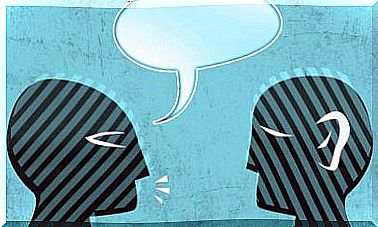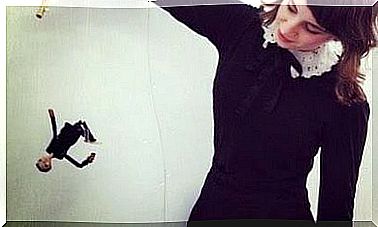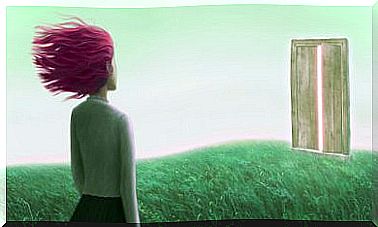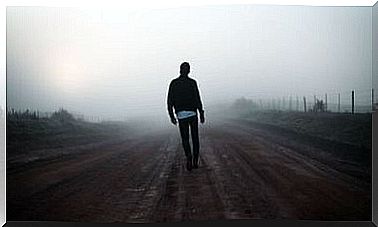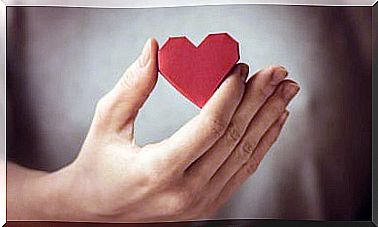The 4 Phases Of Fear

Fear is natural in the prudent, and knowing how to overcome it is to be brave.
(Alonso de Ercilla and Zúñiga)
Fear is a universal sensation, we have all ever experienced it. It is characterized by the feeling of anguish that occurs when a threat is perceived. But this does not mean that it is only negative, it also has a positive side because it protects us.
The feeling of fear appears to warn us of danger. This causes us to be alert and put in place the necessary resources, to face the situation if we think we can, otherwise we will start the escape or flight, to get away because we do not feel capable.
It is important that we bear in mind that the problem is not fear, but that it is only indicating the existence of a problem.
But what happens when fear becomes irrational? that is to say, when we project that feeling towards an object that immobilizes us, that we cannot control and neither do we know how to overcome. To get the answers, we explain the four phases that we go through when we feel fear.

First phase: imagination
Many times, when we are afraid, we imagine everything. We let ourselves be carried away by our expectations of what may happen, in an exaggerated way. But really, we are imagining and creating in our mind a worse situation than it exists, without knowing how it will happen.
We anticipate events, generating fear, and sometimes anxiety.
Why do we do it? the answer is simple. As we have said, feeling fear prepares us to protect ourselves and face a difficult situation. When we begin to imagine in an exaggerated way, it means that our mind is considering possibilities that may happen to be prepared to face them.
The worse the situation we are thinking about, the better we can cope with it, if we consider that we have sufficient resources.
Our mind works fast and we can’t help but put ourselves at worst. This can save our lives in many situations.
Second phase: fear
The second phase of fear is fear itself. We have previously imagined what can happen, the possible alternatives, how we can escape from that situation … Now, fear arrives.
Fear manifests itself in your thoughts, but also in your body. When fear comes you start to hyperventilate, your heart beats louder, your voice will attenuate and you will feel your body full of nerves. You will no longer be able to imagine or think. Just feel and prepare to act, nothing more.
An example of fear can be when we are afraid to speak in public. We think that we are going to do it wrong, that we are going to make mistakes, that they are going to laugh at us … Creating and creating expectations and imagining the thousands of possible alternatives. What causes us a feedback that prevents us from getting rid of this fear, the fruit many times, of our insecurities.
Third phase: stoppage and acceleration
When we focus only on what we feel, without giving room to our thoughts, it can happen that we block ourselves. This is the third phase of fear. When we can no longer think, when we are faced with a situation that prevents us from acting … Here is what everyone fears happens, being paralyzed by fear.
This situation is usually lived with helplessness, sometimes without knowing how to get out of it. But what can we do? expect. When fear paralyzes us, we must wait for it to pass. It is not a feeling that goes quickly, but it takes a few seconds. Our body has set off the alarm and it takes time to understand that there is no risk.
Also in this phase, fear can accelerate us, instead of paralyzing us. And it is at this moment, when we begin to do nonsense. An example is, when we cover ourselves with the sheets on the bed or look in the closet… If we think about it, what are the sheets going to protect us from? We know it is ridiculous, but at that moment fear controls us and we are not aware of what we are doing.

Fourth phase: memories
Imagination leads us to fear in its purest form, which can paralyze or accelerate. But what is the last link in the chain of fear? Memories. Everything is recorded in our mind, especially stressful events or with great emotional tonality.
If we have had a bad experience with a partner, (and we are saying “a bad experience”, a negative moment, etc.) every time we approach someone who intends to be our partner, that previous memory will be activated. What happens then? that memories condition us, at the same time that they protect us from an evil that we have been through and want to avoid.
These memories can cause us to miss opportunities, which is why they are not always positive. It is true that it is okay to learn and perhaps act differently to avoid being hurt, but not to avoid it. We must try to overcome our fears, not let them control and condition our life. If we are afraid to speak in public, let’s draw our willpower to overcome it. Fear is in our mind and only we ourselves can overcome it.
As we have seen, these are the four phases of fear that we go through when something terrifies us. It is normal to feel fear, and even good, but we cannot allow fear to condition our lives. We must learn to overcome it. Remember that we can all learn from our fears. They only indicate the existence of a problem and the possibility of solving it. Don’t make fear your enemy.
